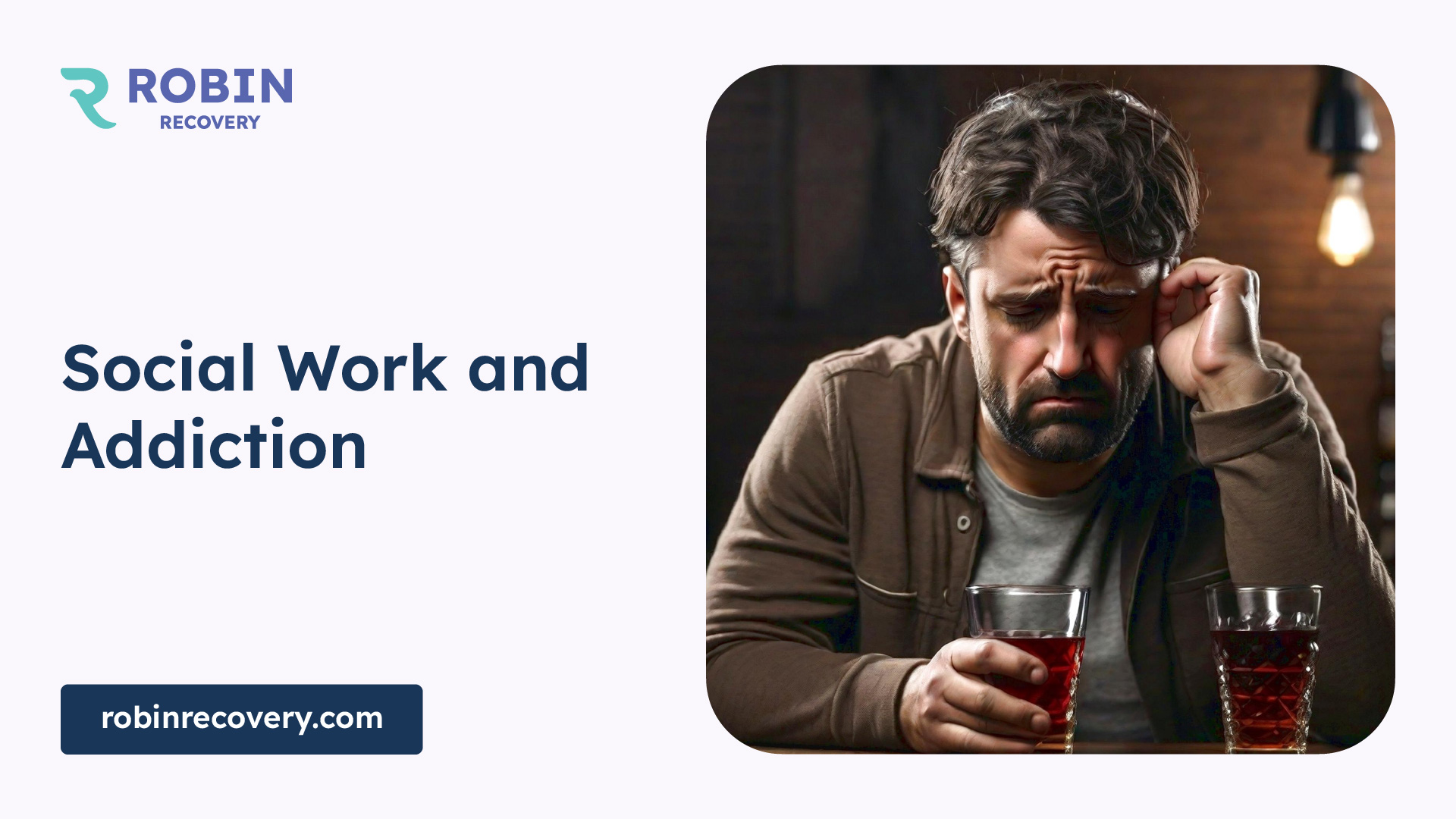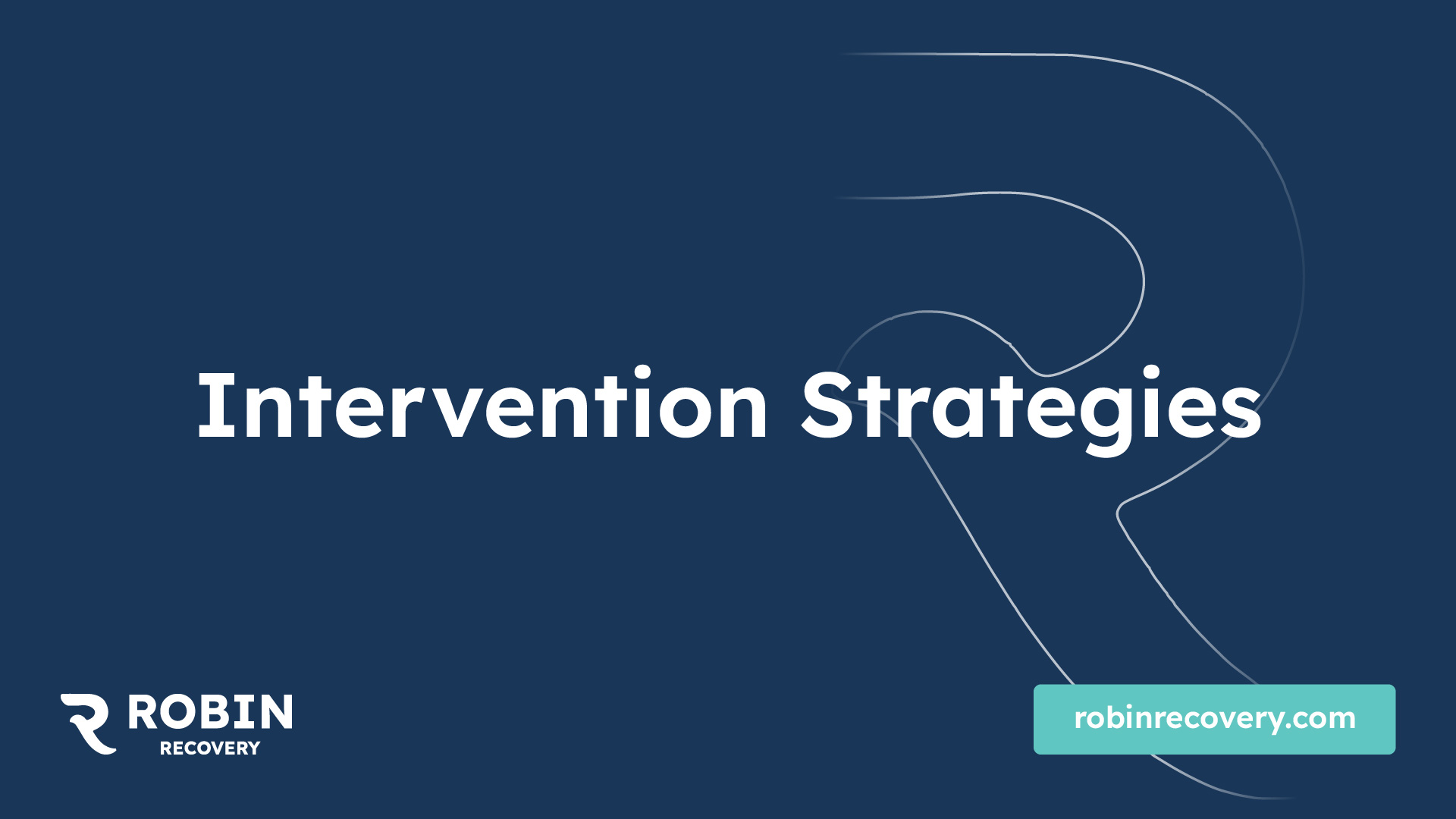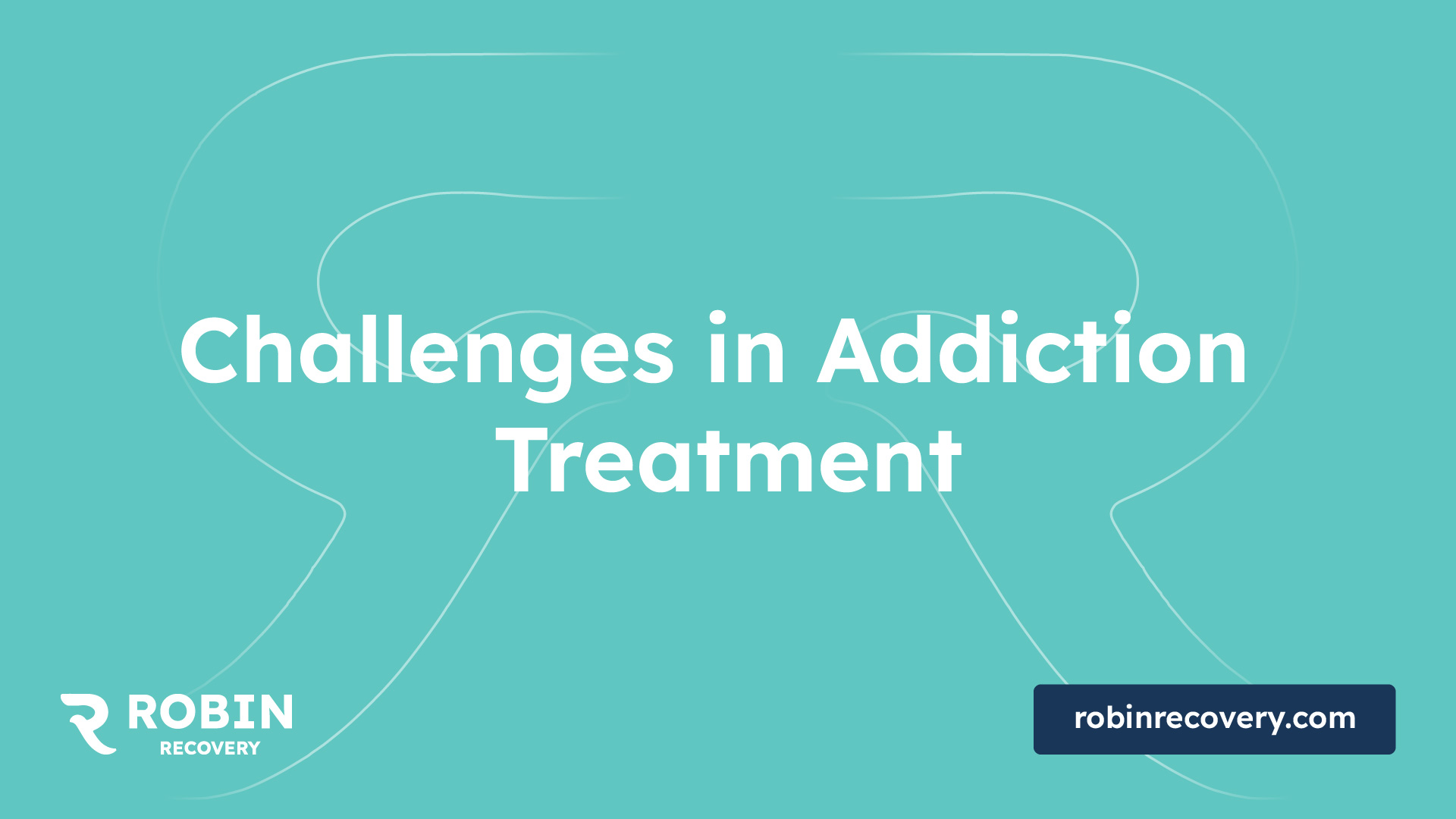Social Work and Addiction


The Role of Social Workers
Social workers play a crucial role in addressing the complex issue of addiction, providing support and guidance to individuals struggling with substance use disorders. Their involvement goes beyond traditional therapy, focusing on the broader environment that affects the substance user's life. While therapists primarily address the psychological and mental needs of the individual, social workers take into account the social and environmental factors that contribute to addiction and recovery.
Importance of Social Workers
Licensed Clinical Social Workers (LCSWs) often act as therapists, utilizing a broader range of intervention strategies to assist substance users. Social workers bring a unique perspective to addiction treatment, considering the impact of family dynamics, community support, and other external factors on the individual's recovery journey. By focusing on the environment surrounding the substance user, social workers strive to create a comprehensive treatment plan that addresses the underlying issues contributing to addiction and facilitates lasting change.
Collaboration in Treatment
In addiction treatment, a collaborative approach is essential for success. Social workers are part of an integrated treatment team that includes case managers, therapists, counselors, medical doctors, psychiatrists, nurses, and 12-Step sponsors. This multidisciplinary team works together to achieve the goals set to address the problems and behaviors of the substance user, emphasizing the importance of a team effort in the client's recovery [1].
Through collaboration, social workers and other professionals can leverage their expertise and provide holistic care to individuals with substance use disorders. The combined efforts of the treatment team allow for comprehensive assessments, individualized treatment plans, and ongoing support throughout the recovery process. By working together, social workers and other professionals can maximize the chances of successful outcomes for individuals struggling with addiction.
To ensure effective collaboration, communication among team members is vital. Regular meetings, case conferences, and shared documentation help ensure a coordinated approach to treatment. Social workers act as advocates for their clients, facilitating communication between different professionals involved in the treatment process. This collaborative effort helps create a supportive and cohesive environment that fosters recovery.
The involvement of social workers in addiction treatment has increased significantly over the years, with addiction becoming a recognized specialty practice area for National Association of Social Workers (NASW) members. Social workers have become leaders in addiction-related organizations and play a critical role in implementing evidence-based practices for substance use disorders. Their expertise and dedication contribute to the growth and improvement of addiction treatment, ensuring that individuals struggling with addiction receive the comprehensive care they need.

Intervention Strategies
Social workers play a vital role in assisting individuals with addiction, utilizing evidence-based intervention strategies to help them overcome their substance use disorder. One of the key intervention strategies employed by social workers is cognitive behavioral therapy (CBT).
Evidence-Based Approaches
Social workers employ evidence-based intervention strategies to assist substance users in their recovery journey. These evidence-based approaches are backed by scientific research and have proven effectiveness in addressing substance use disorders. By utilizing evidence-based strategies, social workers can provide comprehensive and effective support to individuals struggling with addiction.
Some of the evidence-based intervention strategies commonly used by social workers include:
Cognitive Behavioral Therapy (CBT)
Cognitive Behavioral Therapy (CBT) is a widely used evidence-based approach in treating substance use disorders. It is based on the understanding that thoughts, feelings, and behaviors are interconnected, and by modifying negative thought patterns and behaviors, individuals can achieve positive change.
In CBT, individuals work with a social worker to identify and challenge negative thoughts and beliefs that contribute to their substance use. Through this process, they learn healthier coping mechanisms and develop skills to manage cravings, stress, and other triggers associated with substance abuse.
Research supports the effectiveness of CBT in reducing substance use and preventing relapse in individuals struggling with addiction. It has been shown to be effective with alcohol, cocaine, and marijuana-dependent adults, as well as with substance-abusing or dependent adolescents [2].
By employing CBT as an intervention strategy, social workers can help individuals gain insight into their substance use patterns, develop healthier coping mechanisms, and make positive changes in their lives.
By utilizing evidence-based intervention strategies like CBT and other approaches, social workers play a crucial role in supporting individuals on their journey to recovery from addiction. These strategies focus on addressing the underlying factors contributing to substance use and promoting positive behavior change. Collaborating with social workers and sponsors can lead to a comprehensive and effective approach to overcoming addiction.

Challenges in Addiction Treatment
Addressing addiction and providing effective treatment is a complex process that comes with its own set of challenges. Social workers involved in addiction treatment face various ethical considerations and navigate the complexities of dual relationships.
Ethical Considerations
In the field of substance abuse, social workers encounter ethical challenges that require them to reaffirm the social work value base, incorporate social work values into service delivery, and make informed ethical decisions. These considerations are crucial for maintaining professional boundaries and ensuring the well-being of both clients and practitioners [4].
Some of the ethical dilemmas that social workers may face in addiction treatment include:
Dual Relationships
Dual relationships refer to situations where social workers have multiple roles or relationships with clients. These relationships can occur simultaneously or sequentially, and they can have ethical implications in addiction treatment. It is important for social workers to be cognizant of the potential conflicts of interest that may arise and take steps to mitigate them.
In addiction treatment, social workers may encounter dual relationships in various contexts:
Navigating dual relationships requires careful consideration, self-awareness, and adherence to ethical guidelines. Social workers must continuously assess and address any potential conflicts to maintain the integrity of the therapeutic relationship and provide effective addiction treatment.
In the field of addiction treatment, social workers play a crucial role in addressing ethical challenges and managing dual relationships. By upholding professional standards and prioritizing the well-being of clients, social workers contribute to the ethical and effective delivery of addiction treatment services.
Substance Use Statistics
Understanding the statistics related to substance use is crucial for social workers involved in addiction treatment. These statistics shed light on the treatment disparities and overdose trends that social workers must address in their work.
Treatment Disparities
As of 2017, there were approximately 20.7 million people aged 12 and older in the United States who needed treatment for a substance use disorder (SUD). Shockingly, only about 4 million individuals actually received treatment, highlighting the significant treatment gap. This disparity emphasizes the importance of social workers in bridging the gap and ensuring that individuals with SUDs receive the support and treatment they need.
Moreover, a shortage of mental health professionals has further compounded the issue. In 2020, an estimated 15.1 million people with likely substance use disorders could not access treatment due to this shortage [5]. Social workers play a vital role in addressing this treatment disparity by providing accessible and comprehensive support to individuals with SUDs.
Overdose Trends
Overdose deaths continue to be a pressing concern in the realm of substance use. In 2020, there were 91,799 overdose deaths reported, averaging 251 deaths per day. Alarmingly, 62.7% of these deaths were preceded by at least one opportunity for intervention, underscoring the need for timely and effective interventions to prevent fatal outcomes.
The Centers for Disease Control and Prevention (CDC) reported that in 2019, opioids and stimulants were involved in 32.6% of overdose deaths, contributing to nearly 50% of all overdose deaths due to polysubstance abuse. These statistics highlight the complexity of substance use issues and the importance of addressing not only the primary substance of abuse but also the associated polysubstance abuse.
Social workers play a critical role in overdose prevention by providing education, resources, and interventions to individuals at risk. This includes promoting harm reduction strategies, advocating for access to overdose reversal medications like Narcan (naloxone), and working collaboratively with other healthcare professionals to develop comprehensive treatment plans.
By understanding these substance use statistics, social workers can better advocate for accessible and equitable treatment options and develop targeted interventions that address the specific needs of individuals with substance use disorders. Through their efforts, social workers can contribute to reducing treatment disparities and preventing overdose deaths within their communities.
Growth in Social Work
The field of social work has experienced significant growth in its involvement in addressing addiction and substance use disorders. With the increasing recognition of the role social workers play in the treatment of addiction, there has been a surge in demand for their services.
Increased Demand
According to the U.S. Bureau of Labor Statistics (BLS), all social work jobs are projected to grow by 12% between 2020 and 2030. Specifically, social work positions in mental health and substance abuse treatment are expected to experience a growth rate of 15% during that period [5]. This growth indicates the growing recognition of the importance of social workers in addressing addiction and supporting individuals on their recovery journey.
Social workers have become increasingly involved in the field of substance use over the last two decades. Addiction has now become a "specialty practice section" for members of the National Association of Social Workers (NASW). Social workers have emerged as leaders in addiction-related organizations and are playing a crucial role in implementing evidence-based practices for substance use disorders [2].
Future Trends
National, state, and local policy changes are paving the way for the dissemination and implementation of evidence-based treatments for substance use disorders. This shift in policy is expected to lead to expanded roles for social workers in providing addiction treatment. The Supreme Court's ruling to uphold the proposed Affordable Care Act (ACA) in June 2012 is anticipated to further accelerate the need for social workers to prepare for expanded roles in addiction treatment. The ACA is expected to increase patient utilization of addiction services, creating a greater demand for social workers in this field [2].
As the field of addiction treatment continues to evolve, social workers will play a vital role in addressing the complex needs of individuals with substance use disorders. Their expertise in providing comprehensive support, advocating for clients, and implementing evidence-based interventions positions them as key contributors to the field. By staying informed about emerging trends and advancements in addiction treatment, social workers can adapt to the changing landscape and continue to make a significant impact in the lives of individuals struggling with addiction.
Treatment Planning
When it comes to addressing addiction, social workers play a vital role in developing comprehensive treatment plans tailored to the individual needs of their clients. These treatment plans are designed to provide personalized support and guidance throughout the recovery process. Two key components of treatment planning in the context of addiction are personalized plans and a multidisciplinary approach.
Personalized Plans
Treatment plans developed by social workers for clients with substance use disorder are tailored to individual needs and circumstances. These plans take into account various factors such as the severity of the addiction, the presence of co-occurring mental health disorders, and the client's social support network. By understanding the unique challenges and strengths of each individual, social workers can create personalized plans that address their specific needs.
Personalized treatment plans may involve a combination of evidence-based interventions and therapies. For example, cognitive-behavioral therapy (CBT), 12-step facilitation, behavioral couples therapy (BCT), and motivational interviewing (MI) are among the evidence-based intervention strategies that social workers may utilize to support individuals in their recovery journey [1]. These interventions aim to prevent relapse and address social, mental, and psychological triggers that may contribute to substance use.
Throughout the treatment process, social workers work closely with their clients to regularly assess their progress, adjust the treatment plan as needed, and celebrate small wins along the way. By providing ongoing support and guidance, social workers help clients stay motivated and committed to achieving a substance-free lifestyle.
Multidisciplinary Approach
Social workers recognize the importance of a multidisciplinary approach in addiction treatment. They collaborate with various professionals, such as healthcare providers, psychologists, and counselors, to ensure that clients receive comprehensive care. This multidisciplinary approach allows for a holistic understanding of the client's needs and enables the development of a comprehensive treatment plan.
By involving professionals from different disciplines, social workers can address the physical, psychological, and social aspects of addiction. Collaborating with healthcare providers can ensure that clients have access to necessary medical interventions and medication-assisted treatment, if required. Referrals to mental health professionals can help address co-occurring mental health disorders, which often coexist with substance use disorders.
Additionally, social workers may connect clients with employee assistance programs and community resources to provide additional support during the recovery process. Through a multidisciplinary approach, social workers can empower clients to navigate the challenges of addiction and equip them with the necessary tools to achieve long-term recovery.
In conclusion, treatment planning in the context of addiction involves developing personalized plans and adopting a multidisciplinary approach. Social workers play a crucial role in tailoring treatment plans to the individual needs of their clients and collaborating with professionals from various disciplines to provide comprehensive care. By utilizing evidence-based interventions and supporting clients throughout their recovery journey, social workers contribute to positive outcomes in addiction treatment.
References
[2]:
[3]:
[4]:
[5]:
